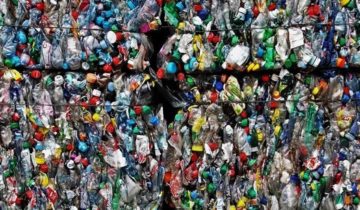
#10 Overconsumption
Share
#10 Eco-tips, overconsumption
Through this series of articles, we will offer you each week insight into the ecological impact of clothing production around the world. With LO NEEL, we are committed to the planet, our Mother Earth which welcomes and shelters us. We refuse to participate, directly or indirectly, in its pollution, degradation and destruction.
It seemed important to us to denounce abusive practices but also to propose lasting solutions on a daily basis. We hope this information will give you a better understanding of the underbelly of mass production in the fashion industry.
The LO NEEL team also supports you in raising individual ecological awareness, by offering each article in this series eco-tips to follow on a daily basis. By following them, this will allow you to behave and consume more healthily and ethically.
Here is eco-tip #10!

15% of our clothing is donated or recycled.
Solution: consume less but better and choose clothing made from natural or recycled fibers.
3 years is the average life of our clothes today.
Solution: adopt the slowfashion lifestyle by consuming less but better, clothes whose quality is guaranteed.

By creating LO NEEL, we are committed to the planet. We have included the brand in the slowfashion movement. Adopting this mode of production and this mode of consumption is the only sustainable way out of the fashion industry. We cannot continue to overproduce and overconsume. We cannot tolerate the planet being constantly destroyed because of us. We are responsible, all at our own level. It is our duty to act and propose alternatives. This is what we have done through the manufacturing of LO NEEL parts .

We advise you to buy durable clothing of certified quality. To make the right purchasing choice, pay attention to the labels that the brands you like have obtained or not. The labels make it possible to certify the transparency of the production of brands. There are labels to certify animal protection (PETA). There are also labels to certify the protection of forests and the absence of chemicals (FSC, GOTS, OEKO-TEX). It is the presence of these labels that allows complete transparency. Thanks to them you will know who made your clothes, how and under what conditions they were made.
We also advise you to move away from fastfashion practices which encourage overconsumption by producing hundreds of collections per year. You don't need that many clothes. Sort through your wardrobe and ask yourself which pieces are really essential to you. Make the effort to look at the labels and components of the parts you are about to purchase. Refocus and ask yourself what is most important today in our society. With each purchase you make, ask yourself what impact it will have, or could have had, on our planet. Get into the habit of reselling or donating clothes that you no longer wear to give them a second life. Get in the habit of buying clothes from ethical, eco-responsible and 100% transparent brands. Also get into the habit of buying second-hand pieces! Keep in mind that buying and consuming means acting for good or bad for the planet.
Finally, in your daily life, remember to constantly sort your waste and reduce its production. Install a compost at home to reduce organic waste. There are several types of composts, vermicomposts, natural composts in a garden or large departmental compost bins. Remember that the things we buy don't just have one life.
